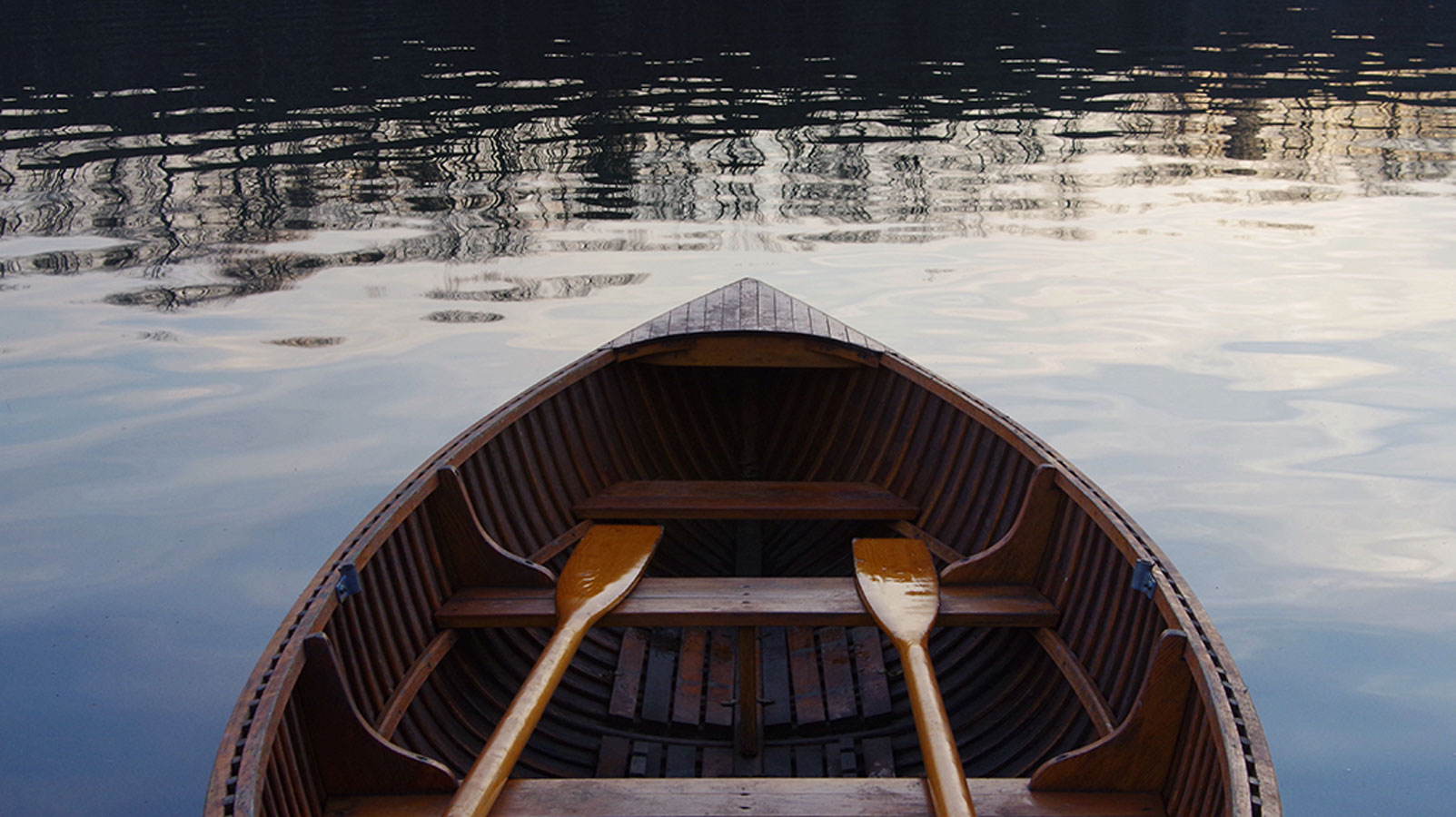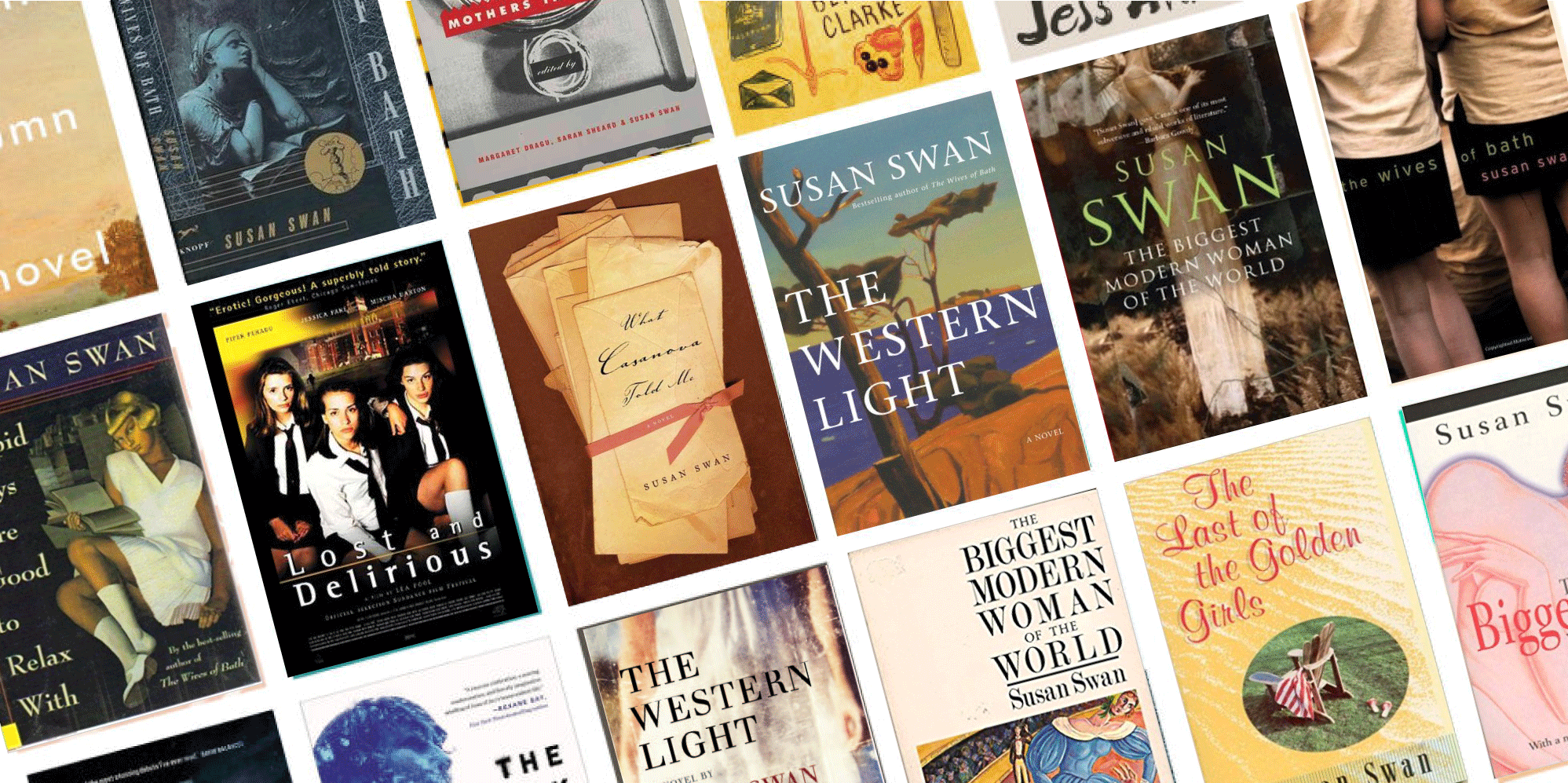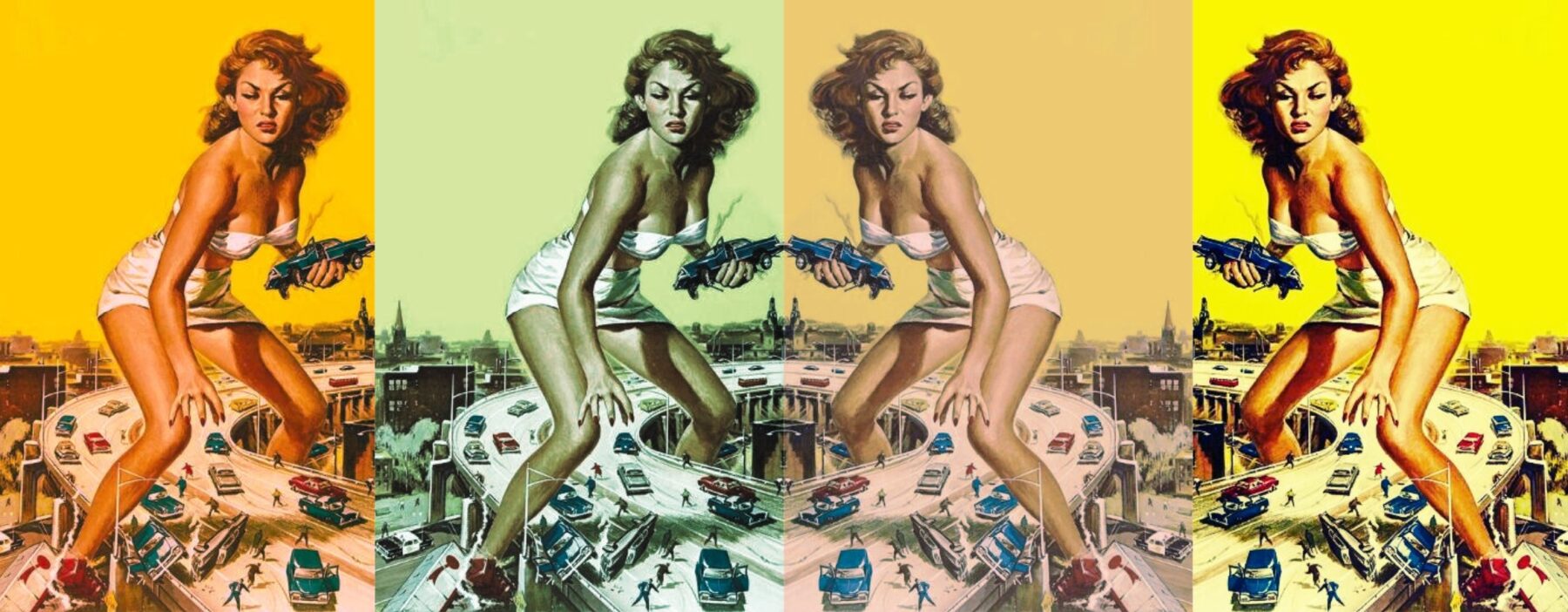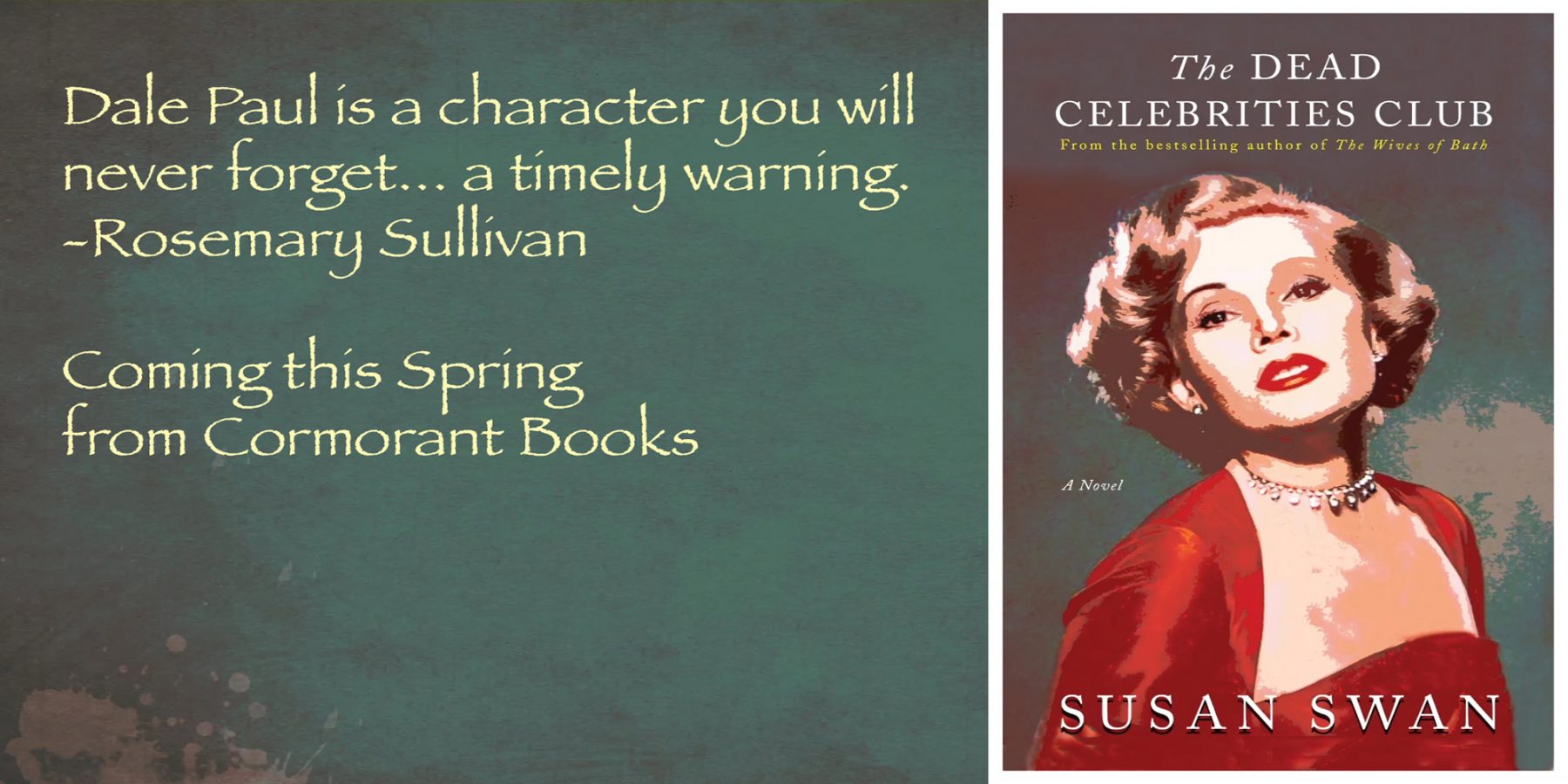BOAT TROUBLE Podcast

It’s been two years since I wrote a blog here. My excuse? I’ve been down a rabbit hole with my new novel, The Dead Celebrities Club, and I am only now coming up for air. This website is getting a face lift in October and I will start posting about Anxiety Pancakes: Life at the End of the Novel.
But right now I wanted to let you know that Accessible Media is airing a podcast this Sunday of my short story in the Walrus titled, Boat Trouble. AM is also broadcasting a short interview with me talking about the real life incident that inspired the story. That is, the summer night, my partner and I were out in an old wooden boat without a moon or proper running lights, lost like cijits (short for city idiots) in the Open, as the locals call the wide open water of the Georgian Bay.

Here is the pertinent info about the podcast:
The broadcast is this Sunday July 30 at 7pm Eastern time. It will be available on AMI-audio’s audio-only cable television channel (Rogers 196, Bell 49, Telus 889, etc) as well as on our online livestream at www.ami.ca/listenlive
This group also puts the shows up online as a podcast: you can search for “the Walrus with Lloyd Robertson” on iTunes or any other podcast program.
Read BOAT TROUBLE (published by The Walrus, summer 2017) BoatTrouble-WalrusPub
Anxiety Pancakes: Writing a Novel is like Building a House (Or Something)

“Wood-framed house” by Jaksmata – Own work. Licensed under CC BY-SA 3.0 via Commons
It’s back to the drawing board for me. My knowledgeable readers have spoken and said that the story in my novel doesn’t start moving early enough. I accept their views because I did what I said was necessary in my last post: I listened to them and I reread a good chunk of my manuscript myself.
Some writers have to complete each page perfectly before they move on to the next. But for me, writing a novel is like building a house. I do it in stages. First, the note making and research, and filling a large page with the names of some of the characters and a list of some of the scenes. Then I do the first draft on a tape recorder so I have something to work with–a blurt, as I call it. You get the gist. Down goes the floor but oops maybe I’ve forgotten to dig the foundations. And how about that missing roof?
A crucial stage is finding the voice. It took me almost a year to find the right voice for The Dead Celebrities Club. Now it seems I have been confusing the theme of my novel with the story and I need to go back, and streamline my prose so the story isn’t lost in my descriptions. That means throwing out some chapters and extraneous pages, something I find hard to do because I am the loyal type. If I’ve worked on passages until they glisten it breaks my heart to say good-bye although saying good-bye is what I must do.
I’ll put my discarded sections in a file so I can bring them out if I need them. That way these passages aren’t banished forever.
So I’m picking up my hammer and saw and possibly a wrecking ball. It’s time to get down to work.
Anxiety Pancakes: The Horror of Vulnerability
 I’m waiting for reactions from two very knowledgeable readers to the latest draft of my new novel, The Dead Celebrities Club.
I’m waiting for reactions from two very knowledgeable readers to the latest draft of my new novel, The Dead Celebrities Club.
The experience of waiting is like floating free in a void, as if I’ve been set adrift in the galaxy without a space station in sight. Adrift? Really? Yes, adrift in the sense that my identity seems to be on the line. Do I rely too much on my work for my sense of who I am? I do, I admit it, and I hate waiting for reactions to my writing. It makes me feel vulnerable and edgy.
Waiting on others is especially hard for someone like me. In the personality chart of the enneagram, I’m number eight, the challenger. A prominent trait of this personality type is taking charge of their circumstances. The basic fear of the challenger is being controlled by others. Being vulnerable, in other words. And feeling vulnerable is horrifying.
Yet vulnerability is the link to creativity. Without it, I would understand nothing about myself or my fellow humans. So I’m going to hang there in space and stay open to the help that others can give me with my book. Aren’t I?
Anxiety Pancakes: When Is A Novel Finished?

In the spring, I said I was finishing my novel, The Dead Celebrities Club, about a white collar fraudster who starts a betting game about old and frail celebrities in a US prison. My dreams told me I was on the home stretch. Well, it turns out there are home stretches and then some.
The first job with a novel is getting the voice of your character right and finding your story. After that, it’s anybody’s guess how many times you will revise your draft. Leonardo da Vinci said art is never finished, only abandoned and Paul Valery said the same thing about a poem. Writers have been talking about the need to abandon and not finish novels for a long time now.
But when is a novel finished? That is, what makes the writer decide it’s time to show it? When I began novel writing, I handed over my draft to an agent long before my book was done. I wanted my agent to find an editor who would help me finish it.
Today I hold onto my work much longer. Most editors are too busy to nurse along a work of fiction so sometimes the agent steps in and helps the writer finish their book before it is shown to publishers.
So when is a novel finished? Here’s a clue: When you show it to a few knowledgeable readers and they don’t say your book needs a lot more work. Key phrase––a lot more. Critical readers will always find something wrong; that’s their job. But if their comments resonate with you and the problems they spot are easily fixable, your novel may be close to being finished.
The other answer is your own reaction. Leave your novel for a month or so. Then go back and read it through. If you find it (mostly) surprises and pleases you, maybe it’s time to show it. Or you can always hug your manuscript close like Alistair MacLeod until somebody pries it away from you.
Riding through the Waves like Poseidon Scouting Out Film Locations


 On Labour Day Sunday, I rode through the waves like Poseidon with my brother John and the young film makers who are making a film of my last novel, The Western Light. It is set in a tourist town on the Georgian Bay.
On Labour Day Sunday, I rode through the waves like Poseidon with my brother John and the young film makers who are making a film of my last novel, The Western Light. It is set in a tourist town on the Georgian Bay.
We scouted out the lighthouse on Hope Island, part of a trio of huge wooded islands off Cedar Point on the Georgian Bay. The blue watery realm is so isolated that the physical experience of being there feels like drifting into a metaphysical dimension. This atmosphere is partly created by the lack of cottages or homes since the islands belong to the band on Christian Island. The film makers Hannah Cheesman and Mackenzie Donaldson took pictures and tried to imagine filming in such a rugged location. Unfortunately, the original top of the 1881 lighthouse had been replaced by a steel structure and light. Hannah is wearing a captain’s hat; Mackenzie is smiling into the camera.
These are Mackenzie’s photos, a taste, she says, of our afternoon on the water. The trip ended with a visit to the Waypoint Health Centre in Penetang, the old psychiatric hospital that is also in my novel. An old Georgian Bay lighthouse is also in the story.
Hannah and Mackenzie were just named two of the 2015 top five people to watch in Canadian film. Their short Boxing is at TIFF this September. The other producer Lauren Grant was home looking after her month old baby. Her most recent feature Wet Bum, which debuted at TIFF last year, was featured in a recent Globe and Mail article.
Film Deal for The Western Light with Upcoming Canadian Women Producers
Three young creative Canadian women film makers have come together to make a feature film based on the prequel to my international bestseller, The Wives of Bath. The prequel is The Western Light about Mouse Bradford, a precocious girl who is pushed to the brink when she mistakenly places her trust in an institutionalized ex-hockey star and convicted murderer, only to flee her small town and discover that goodness is more mysterious than evil.
The three film producers are Mackenzie Donaldson, an associate producer of Orphan Black, the hit television series about a cabal of cloned women and Hannah Cheeseman, script coordinator and an executive assistant on the Orphan Black series who together form Aberrant Pictures; and Lauren Grant of Clique Films who produced Wet Bum, a feature film with rising TIFF star Julia Sarah Stone. The women from top down in the photos inserted in my blog are Hannah Cheeseman; Mackenzie Donaldson and Laurie Grant.
Hannah will write the screenplay for The Western Light and play the part of Little Louie, Mouse’s aunt. Hannah also wrote the script and acted in “Whatever, Linda”, her newly released web series made with Orphan Black producer Mackenzie Donaldson. “Whatever, Linda” is an Internet Odyssey about an alleged secretary who is the mastermind behind Bernie Madoff’s Ponzi scheme. Lauren Grant was recently named one of 15 talents to watch by the Hollywood Reporter. I’m currently finishing my new novel, The Dead Celebrities Club.
The novel The Western Light was published by Cormorant Books in 2012 and The Wives of Bath (published in 1993) was made into the 2001 feature film “Lost and Delirious” shown in 32 countries and starring Jessica Pare, Mischa Barton and Piper Parabo.


 Kim Witherspoon of Inkwell Management handled the deal in association with Samantha Haywood of Transatlantic Agency.
Kim Witherspoon of Inkwell Management handled the deal in association with Samantha Haywood of Transatlantic Agency.




